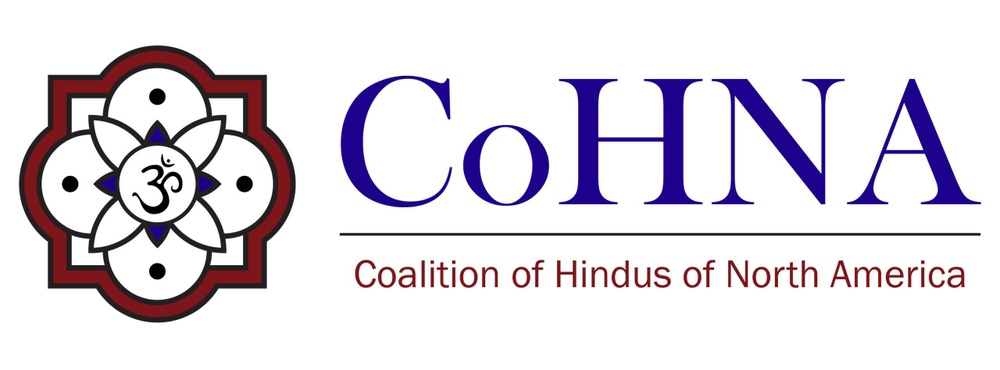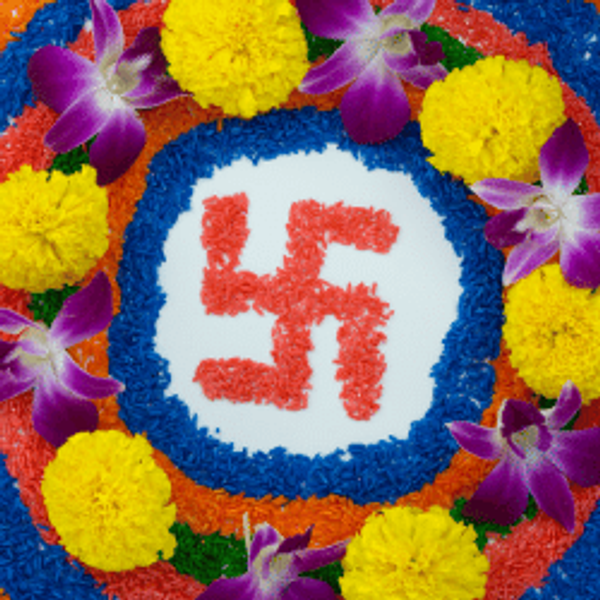June 22, 2022. Bay Area, CA. Fearing the impact from the faulty and hateful language of California’s bill AB 2282, more than 110 American Hindu, Buddhist and Jain organizations, federations and groups from twenty states, including forty three from California, sent a letter to California’s Senate Public Safety Committee. While supporting the overall intent of the bill, the Dharmic organizations emphasized that it continues to associate the sacred Swastika with Hitler’s symbol of hate via its usage of the words “Nazi Swastika.” Equally problematic is the insertion of new language that incorrectly states that the “Nazi Swastika” was the official emblem of the Nazi party. AB 2282 is currently working its way through the state legislature.
The letter urged the Senate to remove “Nazi Swastika” and instead utilize words such as “Nazi emblem” or “Nazi symbol of hate.” The letter also asked to add words such as “incorrectly known as” before the term Nazi Swastika, which would clarify that Hitler and Nazis never used the word “Swastika” - only “Hakenkreuz.”
“Instead of using this opportunity to correct a historical injustice, AB2282 bill reiterates language that falsely associates our sacred and religious symbol of Swastika with the Nazis. We request Assemblywoman Rebecca Bauer-Kahan to do better,” said CoHNA Board Member and Bay Area Chapter Lead, Pushpita Prasad. “The amended language of the bill will continue to curtail the freedom of religion for Americans of Hindu, Buddhist, and Jain faiths and perpetuate popular beliefs that tie the Swastika with Nazi hate. This type of language has created a situation, where people are trained to hate and fear the Swastika, without considering context, creating an environment where our safety is threatened.”
Misinformation about the Swastika has real life consequences. Just this month, in the Bay Area itself, a popular summer camp was abruptly shut down over Swastika misunderstandings, leaving 900 children without a safe place in the summer and forcing the owners to remove the sacred Buddhist art. This happened even though the staff knew that the symbol was Buddhist in origin and predated the rise of Hitler.
While the amended bill does insert the word “Hakenkreuz” (hooked cross) once, it refers to Hitler’s hate symbol and the Nazi party emblem as “Nazi Swastika” several times through the rest of the bill. The bill’s title itself falsely labels the Nazi hate symbol simply as “Swastika,” in the same class as a noose. Most problematically, AB 2282 even goes a step further than the existing California penal code by inserting new words such as “...Nazi Swastika that was the official emblem of the Nazi party,” which effectively negates the good done by the insertion of Hakenkreuz and creates the false idea of a “good Swastika” and a “bad Swastika.”
As recent research has shown, this belief is not just hurtful to minority religious groups living in California, it's also factually wrong. Hitler always referred to his symbol as “Hakenkreuz,” a term that was also widely used by newspaper reports and journals of the time. This historic fact was changed in popular perception by faulty journalism and scholarship in the years following World War 2.
From the beginning of its Swastika Education and Awareness Campaign two years ago in the state of New York, CoHNA and its Hindu, Buddhist and Jain organizational partners have consistently maintained that the usage of the words “Nazi Swastika” violates the religious beliefs of these communities and continues to incorrectly label a sacred symbol that is thousands of year old as an emblem of hate and genocide. To correct this false narrative, many steps have been undertaken. CoHNA has also created a full Youtube playlist on the Swastika, including multi-faith events with researchers, academics and spiritual leaders from various backgrounds.
Since late April, CoHNA has also attempted to work with Assemblymember Bauer-Kahan’s office and educate them on the important differences between the two symbols, to use the word “Swastika” only when referring to the sacred symbol and use the words “Hakenkreuz,” “Nazi Hakenkreuz,” “Nazi hooked cross,” “Nazi hate symbol,” etc. when referring to Hitler’s symbol of hate. The organization has provided suggested language that can be incorporated into the legislation in order to make it inclusive while also condemning hate and intolerance.
The groups agreed to continue the dialogue and outreach to lawmakers in California and impress upon them the importance of language and context when referring to sacred symbols vs symbols of hate. California lawmakers have a historic opportunity to do the right thing and set the path for others to follow.
CoHNA and its partners will engage with legislators and oppose the bill in its current form until the language is amended while simultaneously standing in solidarity with the Jewish, African American and other communities targeted by hatred and bigotry using the Nazi Hakenkreuz.
For additional information and educational materials on the Swastika, please visit https://cohna.org/swastika

